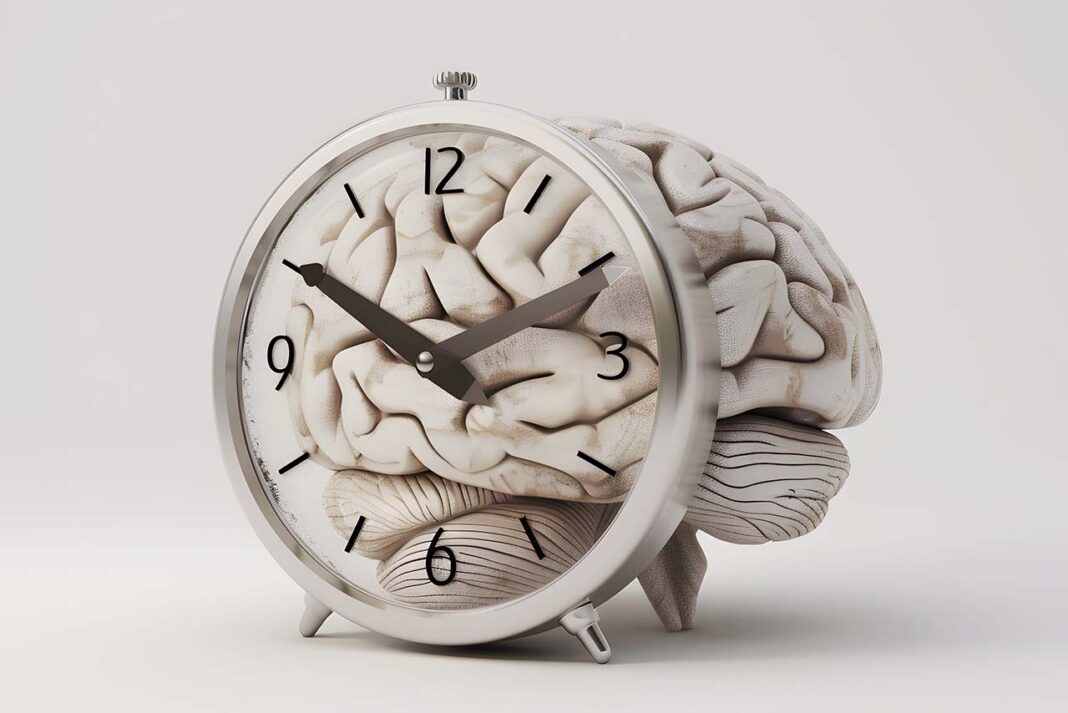Time perception is a concept that seems immeasurable yet permeates every moment of our lives. Memories of the past, dreams of the future, and the sense of being lost in the present… all are subjective experiences of time perception. But how does our brain perceive time, and how does this perception shape our lives? Neuroscience research reveals that time perception is not governed by a single center. Different brain regions such as the prefrontal cortex, cerebellum, basal ganglia, and insular cortex process various dimensions of time and constantly communicate with each other.
For example, David Eagleman argues that our feeling of time slowing down during new or intense experiences stems from the brain processing these moments in greater detail. In such moments, the brain gathers more sensory information, increases processing, and this results in the subjective feeling that time has expanded. Time perception is closely linked not only to external stimuli but also to internal processes. According to Marc Wittmann, whether time seems to lengthen or shorten depends on where a person directs their attention. In individuals who practice meditation or mindfulness, time flows more slowly; in those experiencing intense anxiety, time may sometimes seem to stand still, and other times to rush by. Here, the brain functions like an internal metronome, but this metronome is not fixed and changes depending on the person’s mood, attention, and intensity of experience.
The fact that time seems slow in childhood but fast in adulthood can also be explained neuroscientifically. Children rediscover the world every day; the brain is constantly learning, encoding, and categorizing. As a result, childhood experiences are lived with a rich and expansive sense of time perception. In adulthood, however, habits increase; the brain automates certain processes, and the details of experiences are overlooked. This leads to the feeling that time passes more quickly.
In my own observations, there are moments when time almost stands still—while walking in a silent forest, painting a picture, or processing an intense emotion. In these moments, the now comes to the forefront. Mihaly Csikszentmihalyi’s concept of flow perfectly describes this state: the brain loses its relationship with time and focuses solely on the present experience. This disappearance of time perception, when combined with creativity, fuels both mental and emotional production.
Another dimension of time perception relates to the future. Planning, dreaming, and setting goals require the strong involvement of the brain’s prefrontal cortex. In this process, time functions both as a measure and as a tool for motivation. The brain simulates possible future scenarios, evaluates outcomes, and makes decisions based on these simulations. Thus, time perception emerges not only as a passing process but also as a structure through which the brain organizes itself and makes sense of experiences.
The neurological functioning of time perception is also closely connected to emotional states. Intense emotions such as stress, anxiety, and fear can alter time perception; they may accelerate it on one hand or slow it down on the other. The brain uses these fluctuations for adaptive purposes: in challenging situations, attention sharpens, memory works in greater detail, and behaviors speed up. In this way, time perception becomes a dynamic process shaped by both environmental stimuli and internal needs.
In conclusion, time is not merely a chronometer measured by clocks. While perceiving time, the brain processes past experiences, the present moment, and possibilities for the future. Mental flexibility, emotional intensity, and focus of attention determine our perception of time. Neuroscience shows us this: time is not only something that passes, it is processed and experienced. And the way we process it shapes who we are, how we think, and how we create.
References
-
Eagleman, D. (2009). Brain Time: The Temporal Dimension of Consciousness. In M. Gazzaniga (Ed.), The Cognitive Neurosciences IV. MIT Press.
-
Wittmann, M. (2016). Felt Time: The Psychology of How We Perceive Time. MIT Press.
-
Craig, A. D. (2009). How Do You Feel—Now? The Anterior Insula and Human Awareness. Nature Reviews Neuroscience, 10(1), 59–70.
-
Buhusi, C. V., & Meck, W. H. (2005). What Makes Us Tick? Functional and Neural Mechanisms of Interval Timing. Nature Reviews Neuroscience, 6(10), 755–765.
-
Csikszentmihalyi, M. (1990). Flow: The Psychology of Optimal Experience. Harper & Row.


